
Amino acids are the individual compounds that make up all the proteins in both plants and animals. Taurine is one of these amino acids. Most mammals are able to synthesize taurine within their body from other amino acids, but cats cannot synthesize it in adequate enough concentrations, making it an essential amino acid for them. That is, cats need to obtain taurine from their diet.
Taurine can serve a variety of purposes in your cat's body. The main function it's known for is in the aid of retinal function as well as heart function, but it can also help with digestion as well as reproductive development. Cats that aren't getting enough taurine in their daily diet can develop an array of symptoms in relation to these functions. The symptoms won't manifest immediately, but may take anywhere from five months to two years to surface. If your cat isn't getting enough taurine you may see any of the following:
Prolonged retinal degeneration that is left untreated can lead to blindness in your cat. While supplementing your cat's diet with taurine can slow down or even stop the progression of retinal degeneration, it won't reverse any blindness your cat may have suffered before supplementation.
If your cat's taurine-related dilated cardiomyopathy is caught early enough and if it is in turn treated with dietary supplements, the effects can be reversed. If left untreated, though, DCM can lead to heart failure and death.
In pregnant cats, low taurine can lead to smaller litter sizes and smaller birth weights, in addition to other congenital abnormalities. If the kittens are, in turn, fed a taurine-deficient diet, they can have delayed growth and development.
Taurine was first discovered to be an essential amino acid in cats in the 1980s. As such, all commercial cat food has been supplemented with taurine to provide your cat with his/her needed concentrations. Taurine is only found in animal tissue, making cats obligate carnivores.
Pet food companies and researchers discovered that not all of the taurine they put into canned cat food is usable by your cat's body. This is due in part to the heat applied during the processing of canned cat food. The pet food companies have compensated for this by adding more taurine in their wet food formulations than dry food. So long as your are feeding a commercial cat food that is appropriate for your cat's age group (growth, adult maintenance, gestation/lactation) you can rest assured that there is enough taurine in your cat's diet.
It is important to note that when checking for the life stage of your cat's food, you should not rely solely on what is in giant font on the front of the bag, but also rather what the AAFCO statement says. AAFCO is the pet food regulating body and an AAFCO statement is typically found on the back or side panel and near the guaranteed analysis and/or ingredient list. In addition to telling you what life stage the food you is for, the AAFCO statement will tell you if the food has been formulated or if it has been tested.
Formulated simply means the pet food company followed the guidelines put forth by AAFCO to make a pet food for that species and for that life stage. Tested means the pet food company not only followed the guidelines but then also put the food through diet trials to ensure that it was healthy, complete, and safe for your pet to eat.
If you feed your cat a prescription diet, the levels of taurine in the diet are factored into formulating the diet to treat your pet's illness. If you home cook for your cat, you don't necessarily need to add a taurine supplement in if there is adequate taurine levels in your protein source, but review your specific recipe with your vet to ensure that your cat is getting all of the nutrients they need, including vitamins and minerals.
Supplementing your cat's diet with additional taurine isn't always necessary. Again, all commercially available cat foods have enough taurine in them for their labeled life stage. If your cat has a taurine deficiency related illness, your cat may require supplementation in addition to eating an appropriate diet, at least until symptoms dissipate. Supplementation may also be required if the majority of your cat's diet is not from a commercial food.
Supplementing your cat's diet with taurine is relatively safe and supplements are readily available over-the-counter. You always want to check with your vet before starting your cat on a taurine supplement, though. This is because the FDA does not regulate supplements like it does medications, so not all supplements are created equal. Your vet can help point you in the right direction about what taurine supplement to choose.
Taurine is a vitally important amino acid that all cats need in their daily diet. If you have concerns about your cat not getting enough taurine, speak with your vet. They can help you troubleshoot areas of your cat's diet and help answer any question you have about your cat's food.
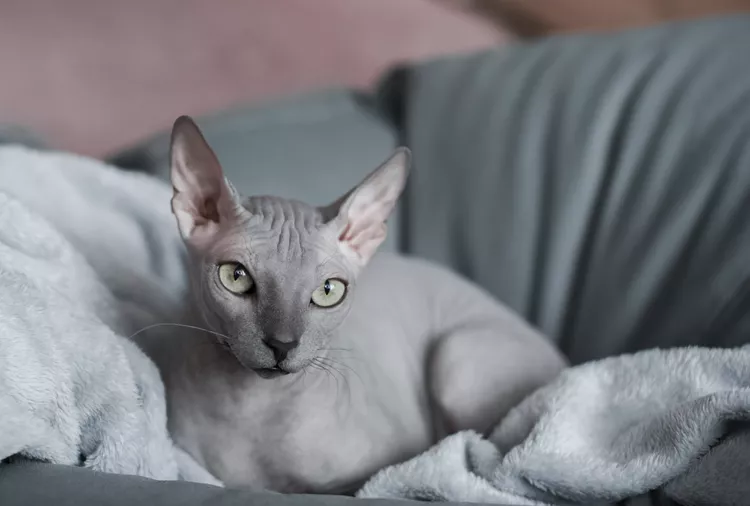
212 Hairless Cat Names For Your Beautifully Bald Feline
Discover the perfect name for your hairless cat with our list of over 200 creative and unique names. From quirky to classic, find a fitting choice for your beautifully bald feline companion.
8 Things Your Cat Loves
Just like humans, cats can have a long list of things they like. Find out what cats love so you can keep your cat happy and healthy.
How to Tell If a Kitten is a Boy or a Girl
If you're wondering whether your new kitten is a boy or a girl, here are three ways to help determine the sex of your cat.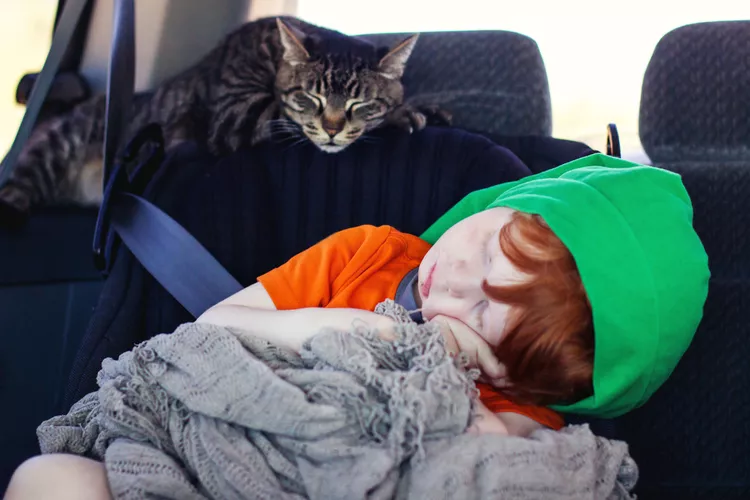
8 Tips to Help Cats Enjoy Car Travel
Cats are creatures of habit, and they hate to travel. Learn tips to prepare them for travel in the car, whether going to the vet or on vacation.
Common Causes of Mucus in Dog Poop
Seeing mucus in your dog's poop can be concerning to a dog owner. Here are common causes and treatment of mucus in a dog's stool.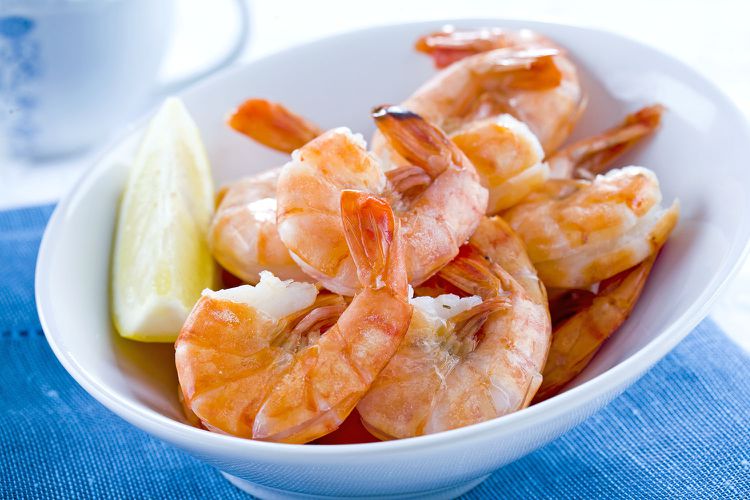
Is Shrimp Bad For Dogs?
Shrimp can be a healthy, nutritional food for people but can dogs eat them, too? What are the main concerns with feeding shrimp to your dog?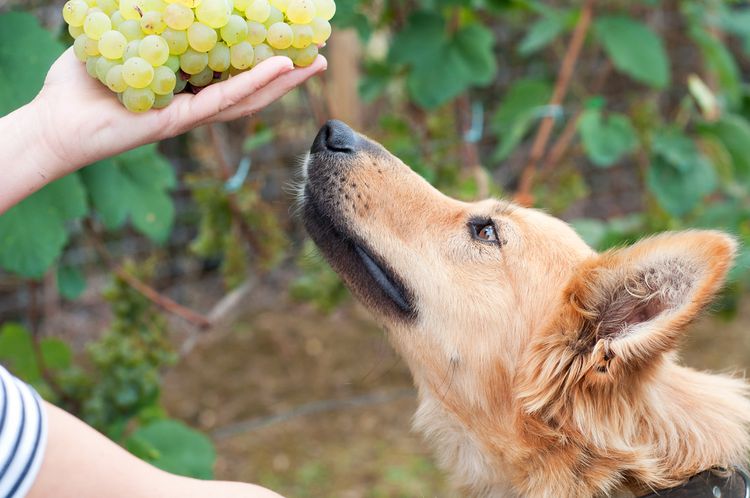
Can Dogs Eat Grapes?
Are grapes safe for dogs? Grapes and raisins can cause serious toxicity in dogs. Find out what to do if your dog eats grapes.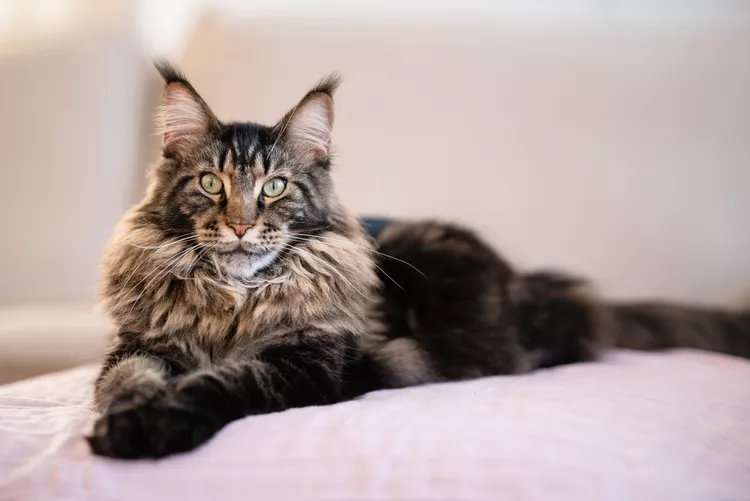
Maine Coon Cat: Breed Profile, Characteristics & Care
The Maine Coon cat is of the largest cat breeds in the world. These amiable, gentle cats make great companions. Learn about the Maine Coon cat breed's appearance, temperament, health, and care needs.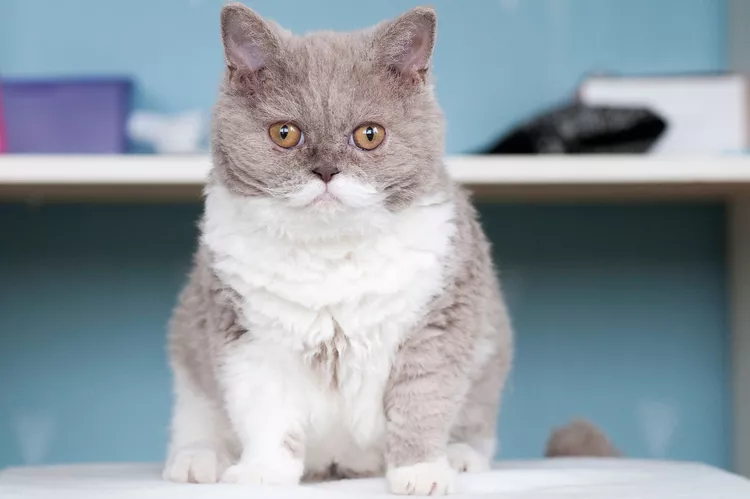
Selkirk Rex: Cat Breed Profile, Characteristics & Care
The Selkirk Rex is a charming cat with a tousled coat and a loving, laid-back personality. Learn about the Selkirk Rex breed.
How to Stop Your Cat From Chewing Electrical Cords
Cats are known to pounce and attack inanimate objects, like electrical cords. Learn how to prevent your cat from ambushing objects that may harm it.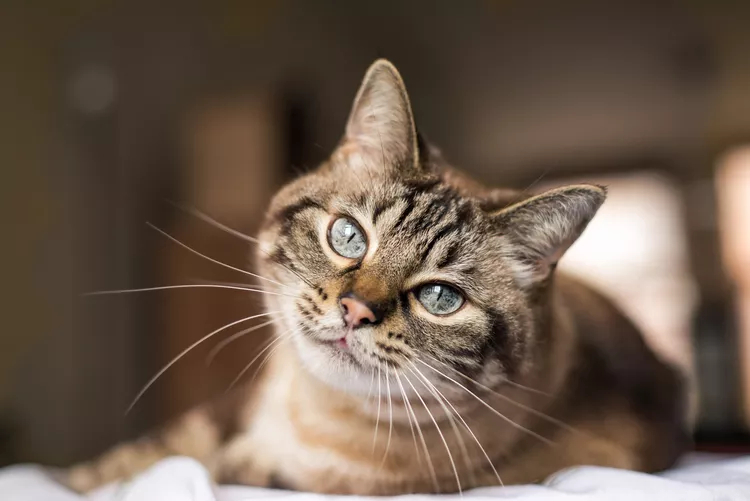
What Do Cats Think About?
Have you ever wondered what cats think about? A number of studies have explored cat behavior and feline cognition, but there's still more to learn.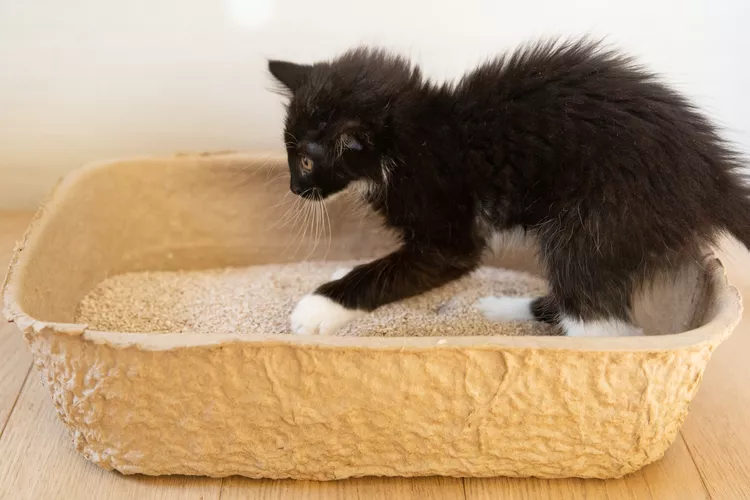
Training Your Kitten to Use the Litter Box
Bringing home a new kitten means they need to learn how to properly use a litter box. Discover how to successfully litter box train your kitten.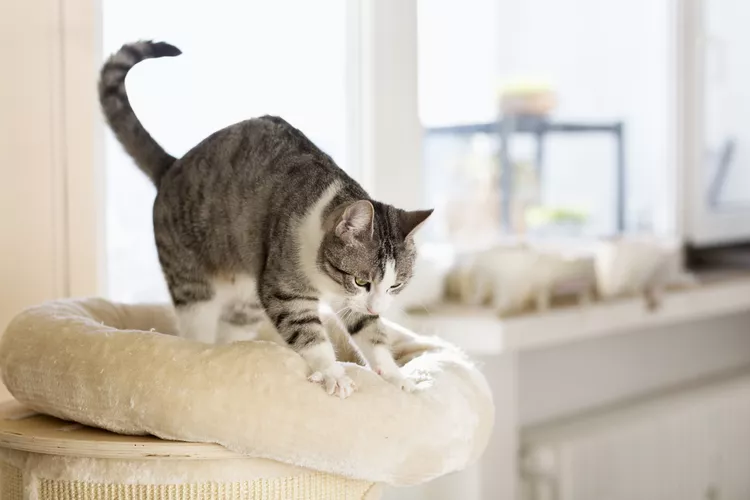
Why Do Cats Knead?
Kneading is a common behavior in cats of all ages. Learn why cats "make biscuits" and what it means for you, your cat, and all your blankets.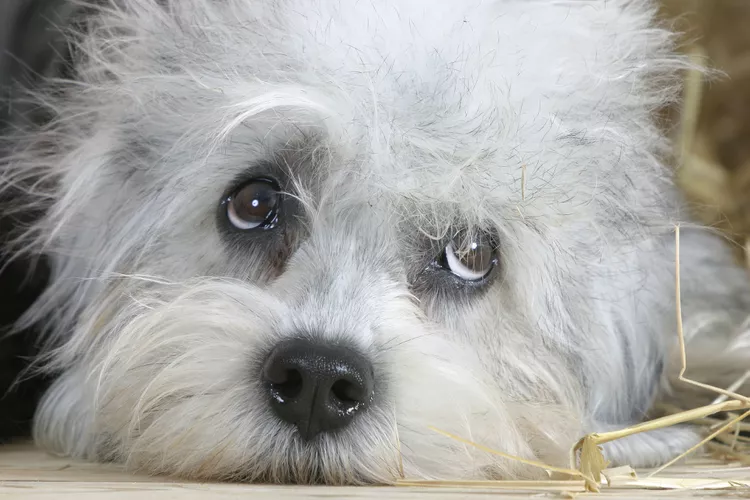
Dandie Dinmont Terrier: Dog Breed Characteristics & Care
Learn about the Dandie Dinmont Terrier, a silky dog breed with a signature puff of hair atop its head and a friendly, companionable personality.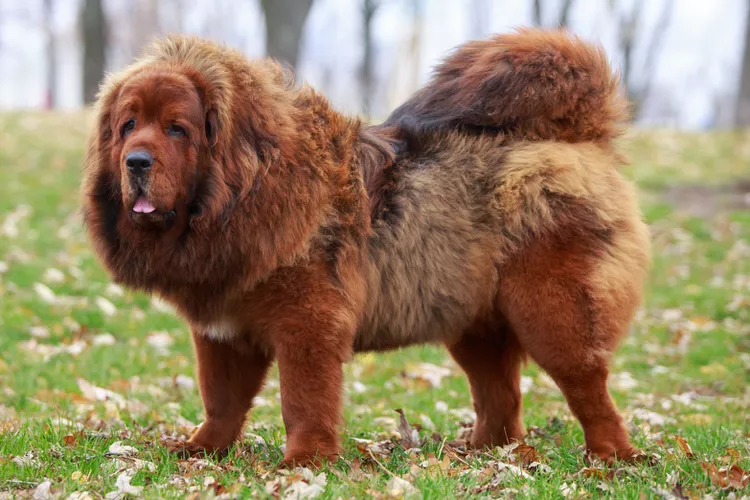
Tibetan Mastiff: Dog Breed Characteristics & Care
Learn about the Tibetan mastiff, an ancient guardian dog breed. This breed is known for their massive stature, flowing mane, and protective personality.
4 Reasons Why Your Dog Licks Their Butt
Butt-licking in dogs can be a part of normal grooming, but excessive butt-licking is not normal. Read about the most common reasons for this behavior.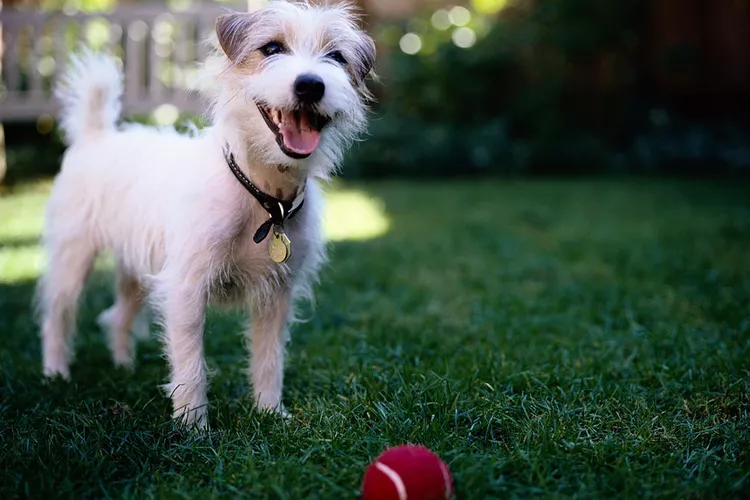
How to Teach Your Dog the "Leave It" Command
Training your dog the "leave it" command is a great way to instill self-control. Learn how to teach your dog to not pick things up from the ground.
How to Solve Your Dog's Fear of Car Rides
Is your dog scared of car rides? This fear of riding in cars is common. Learn why your dog is scared of car rides and how to help conquer this fear.
Can Dogs Get Depression? How to Help Your Sad Dog
Can dogs get depression? Learn about the signs of depression in dogs and find out how to help your sad dog.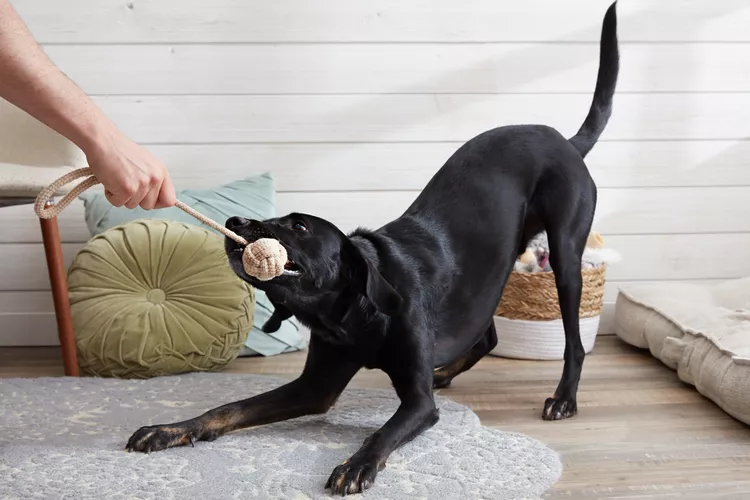
How to Play Tug of War With Your Dog
Many dogs love to play tug of war, and it's a healthy game that provides great exercise. Learn the best way to safely play tug of war with your dog.